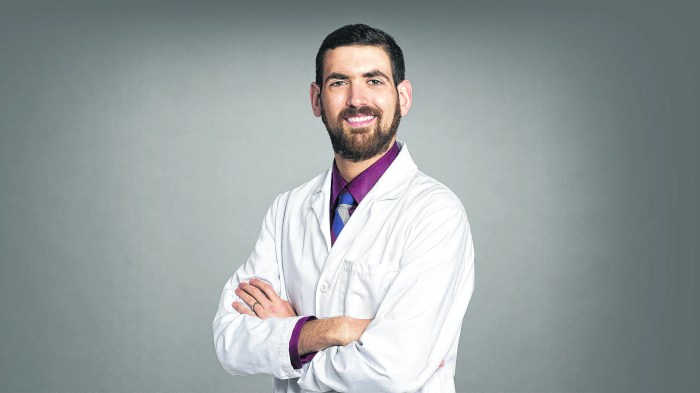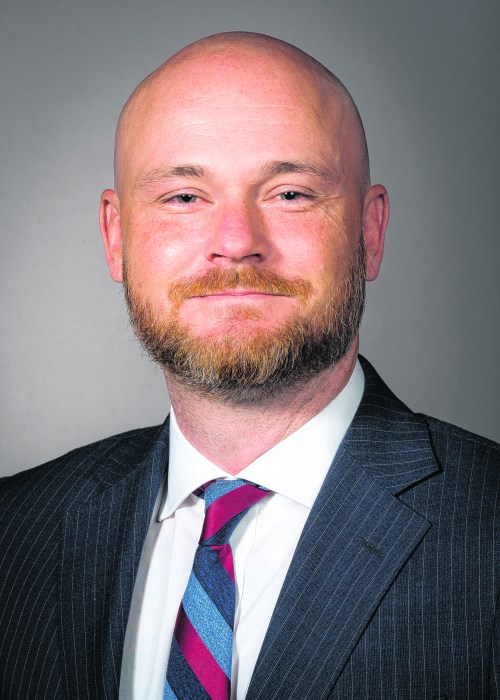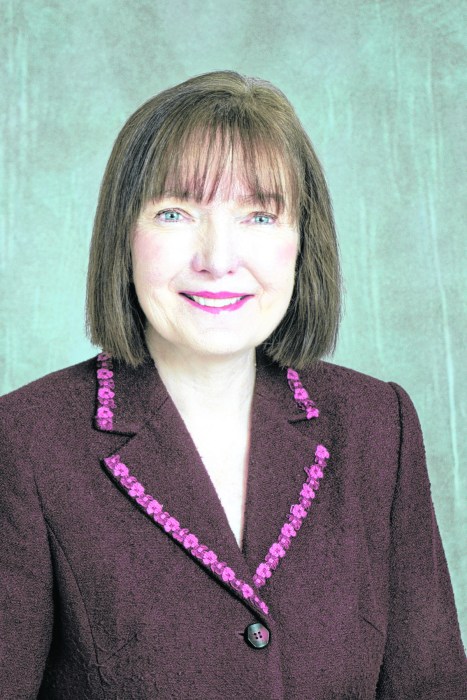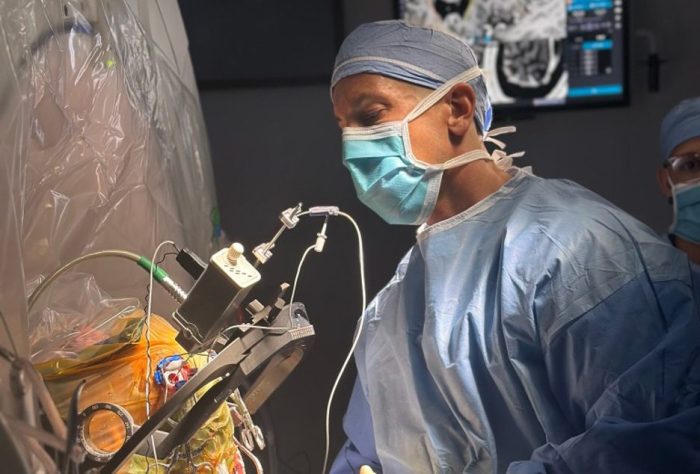As recently as the ‘90s, when patients arrived with all the typical symptoms — memory loss, double vision, fatigue — neurologists often avoided confirming what they most suspected: that the patient had multiple sclerosis, or MS. Why label it as such when, if that were the case, there was so little doctors could do for them?
Thanks to scientific breakthroughs and top-tier treatments — many of them happening right here on Long Island — that is no longer the reality. And the outlook is only getting better.
WHAT IS MULTIPLE SCLEROSIS?
“MS is a condition where the body’s immune system, for reasons we don’t entirely understand, attacks the covering of the nerves in the brain and the spinal cord,” said Dr. Josef Gutman, a multiple sclerosis specialist at NYU Langone Hospital – Long Island.
That covering, called myelin, is like the insulation around an electrical wire. It allows signals from the brain to move efficiently down nerve cells. When it’s disrupted, Dr. Gutman explained, things can “short out.”
READ ALSO: NYU-Langone Long Island, Catholic Health St. Francis receives 5-star rating, hospitals in top 10% nationwide
Those nerve disruptions often come in phases, called flare-ups, and present as muscle weakness, memory loss, vision trouble or coordination issues. But unlike other diseases, which vary little from person to person, no two people experience MS in the same way.
This is a “striking, unique feature of MS as a major neurological disease,” said Dr. Patricia Coyle, a multiple sclerosis specialist at Stony Brook University Hospital. “There’s no model, people don’t follow the same course.”
“We do not know why,” she said.
However, the condition does have notable demographic commonalities.
“It affects particularly young women,” Dr. Coyle said. “It’s about a 3:1 female-to-male ratio of childbearing age. The majority of individuals present with their MS between the ages of 15 and 50.”

LIVING WITH MULTIPLE SCLEROSIS
Karen Stampf was 36 when she began noticing coordination issues. She was tripping and walking into things more often, and, as an OBGYN, had a newfound difficulty performing operations. Sometimes she’d try to hand something to someone, and her arm would go in the other direction.
When she was officially diagnosed with multiple sclerosis, it “certainly disrupted my life,” she said.
But as a doctor, she knew it wasn’t a death sentence. “It was devastating, I think, more to my family than it was to me,” she said.
Stampf’s medical expertise made her journey easier, but that’s not the case for all MS patients.
“Half of people, at least, will experience cognitive or emotional symptoms like depression at some point in their lives around MS,” said Dr. Philip Watson, a neuropsychologist at Northwell Health.
READ ALSO: Northwell’s Glen Cove Hospital earns 5-star rating
Anxiety is common in patients.
“There’s the coming to grips with, ‘Well, what is going to happen to me?’” Dr. Watson said. “‘How often am I going to have a flare-up? What is this going to mean long-term?’”
These mental health issues have roots that are not only psychological, but physical. MS creates damaged areas, called lesions, in the brain. These can cause difficulty concentrating, reduced sexual interest and lower motivation.
“Those are things that are also kind of inherent in MS, outside of psychological or emotional factors that would be involved in depression,” Dr. Watson said.
Among the most pervasive effects of multiple sclerosis is fatigue. As is the case with many symptoms of “invisible illnesses” — conditions that aren’t obvious at first glance — fatigue is sometimes dismissed by others as exaggerated.
“It’s not like, ‘Oh, I’m just tired,’” Stampf said. “It’s feeling so drained that you feel like someone took the cork out the bottom of your foot, and all the energy drained out, like you need to lay on the floor.”

EVER-IMPROVING MULTIPLE SCLEROSIS TREATMENTS
Years ago, there was little doctors could do to treat patients with multiple sclerosis. Now they have the opposite problem.
“The blessing and the curse of treating MS in 2025 is that we have lots of treatments,” Dr. Gutman said. There are more than 20 drugs available that reduce the frequency and intensity of flare-ups.
“With modern treatments for MS, if people get started on a good, highly effective treatment early, [being in a wheelchair] doesn’t necessarily need to be the case,” Dr. Gutman said. “I have patients who are doctors and lawyers and police officers.”
“It’s a whole different ballgame,” Dr. Coyle said. “If we get you on the right treatment … I believe you can expect a normal life where no one would suspect that you had MS.”
These advancements in treatments have made all the difference for people like Stampf, now 65. She celebrated her 30th wedding anniversary in May. She’s been retired for 17 years and often helps her husband in their garden. The best thing about her life, she said, is watching her three daughters, ages 21, 22 and 24, grow up and be successful. Though she still occasionally experiences symptoms, they’re “more of an annoyance” than anything else.
The future for Stampf and other patients with multiple sclerosis is looking bright.
“We may just be a few years off [from central nervous system repair strategies],” Dr. Coyle said.
“The majority of patients that I treat, you know, tend to have a very good outcome with these highly effective treatments,” Dr. Gutman said. “And I think that those treatments are just going to keep improving.”































